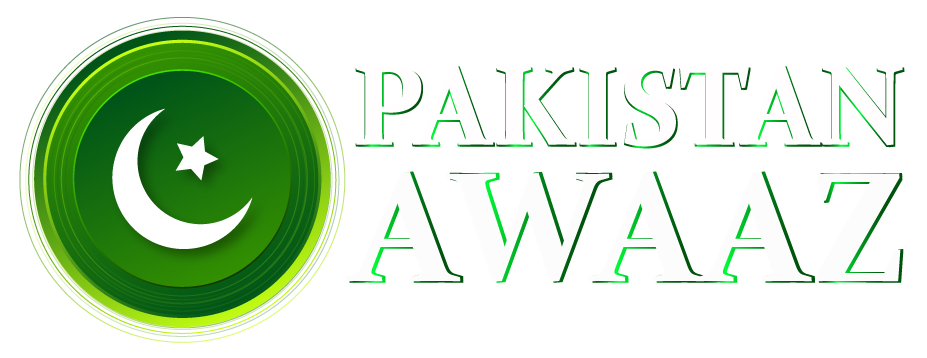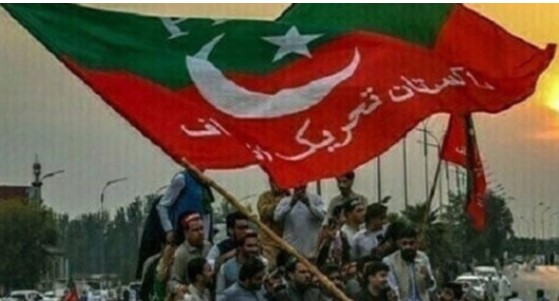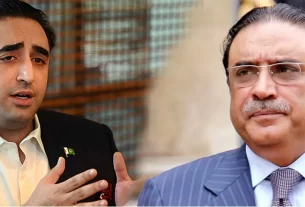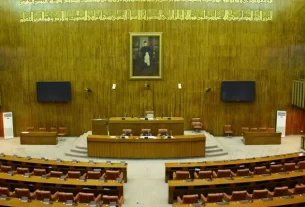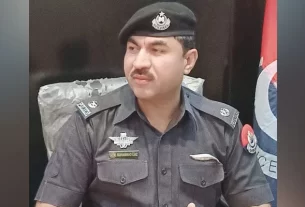1.Govt Approved
The government’s violence on the Pakistan Tehreek-e-Insaf’s (PTI) scheduled protest on November 24 caused Pakistan’s political situation to a head. Imran Khan, the founder of the PTI, has insisted on holding a sit-in in Islamabad in opposition to orders from the Islamabad High Court (IHC). Major highway closures, Section 144 enforcement, and arrests around Punjab are just a few of the notable security actions that have followed from this. Let’s take a closer look at the current conditions.
2. Motorways
The National Highways and Motorways Police (NHMP) declared that six major roads will be closed for “maintenance” in advance of the PTI protest. The motorways listed below are no longer accessible: stated permission stop roads to stop on the pti party march.
M1: Islamabad to Peshawar
M2: Islamabad to Lahore
M3: Abdul Hakeem to Lahore
M4: Multan to Pindi Bhattian
M11: Lahore to Sialkot
M14: Hakla to Yarik
Bridges across the Chenab and Jhelum rivers have also been closed by local authorities in the Gujrat area. Massive traffic interruptions have resulted from this obstruction, and commuters are becoming frustrated with the long lines of cars.
Critics contend that such widespread closures are an attempt to stifle political dissent, while the administration insists that these steps are necessary to avoid anarchy.
3. Punjab Enforces Section 144
All political assemblies, demonstrations, and gatherings are prohibited from November 23 to 25 due to the Punjab government’s use of Section 144. The Standing Committee of Cabinet on Law and Order suggested this action, pointing to worries about terrorism and the possibility of subversive actions during the demonstration.
The threat posed by “mischief-mongers” who could take advantage of the circumstance to engage in anti-state acts was highlighted in the home department’s statement. Supporters of the PTI contend that these limitations infringe upon their fundamental freedom to demonstrate.
4.Islamabad’s Massive Security Presence
Islamabad police have put a strong security plan in place to thwart the PTI’s planned rally, which includes:
a. 21,500 personnel, comprising 5,500 FC officers, 5,000 Rangers, 6,325 capital police officers, and other forces from Sindh and Punjab.
b. 1,200 containers will block important points of entry and departure.
c. 3,259 cameras and drones are being used for digital and aerial surveillance.
There is a strong police presence in key areas like Barakahu, Margalla Avenue, and Faizabad. The goal of the authorities is to maintain public safety while averting possible disturbances.
5. Attack on PTI Employees and Leaders
With police conducting searches and making dozens of arrests throughout Punjab, the crackdown on PTI leaders and sympathizers has been more intense. Among the noteworthy instances are:
a. Thirty people, including PTI employees and young activists, were arrested in Sahiwal.
b. Journalists were arrested and equipment was seized after a police raid in Gujranwala interrupted an announcement by PTI leader Mr Mehdi Hassan Bhatti.
Journalists and political commentators have widely criticized the arrests and the government’s oppressive methods.
6. Govt Argument and Response
Interior Minister Mohsin Naqvi and Defense Minister Khawaja Asif have justified the government’s actions, highlighting the necessity of averting anarchy in the nation’s capital. They contend that both national security and public safety are at risk from the PTI’s ambitions.
a.Asif Khawaja
claimed that permitting the protest could result in more destruction and referred to the closures and limits as a “lesser evil.”
b. Mohsin Naqvi
emphasized the significance of upholding order, particularly in light of the IHC’s directions and the Belarusian president’s visit.
7. Imran Khan’s Courage
Despite incarcerated, Imran Khan still stubborn. In a social media post, he called on the country to join the demonstration on November 24 and called it a crucial time to restore democracy and the rule of law.
Aleema Khan, Imran’s sister, expressed similar views, saying that the demonstration is a fundamental right and a protest against the government’s purported repression of human rights.
8. Govt The larger Political Impact
Deep-seated conflicts inside Pakistan’s political system shown by the government’s harsh response to the PTI protest. In addition to having immediate repercussions, a combative approach to dissent highlights more significant problems with democracy, civil liberties, and governance.
a. Effect on Public Opinion
The legitimacy of the government is under question. This kind of response, which includes widespread movement restrictions and the imprisonment of political leaders, expected to further polarize public opinion.
9. Govt and Global Responses
a. The whole world is observing.
International organizations, human rights groups, and foreign governments frequently scrutinize actions performed during politically tense events.
b.Human Rights Issues:
Human Rights Watch and Amnesty International may criticize crackdowns on nonviolent protests and the detention of opposition members, claiming that these measures violate fundamental rights.
c.Diplomatic Impacts:
Pakistan may face pressure from its Western friends to uphold civil freedoms, especially those that emphasize democratic norms. Such occurrences may have negative impact on Pakistan’s reputation internationally, diplomatic relations, and financial assistance.
10. Govt Importance of Conversation
Political stability, according to experts, can only be attained via communication and compromise between rival groups. While using force alone might put an end to the protest right away, it won’t solve the fundamental issues that motivate these kinds of protests.
The administration might uphold democratic standards and maintain national stability by encouraging communication and investigating alternate strategies for handling opposition.
Also Read: US Election 2024 Famous Attractive Policies : Trump And Harris
